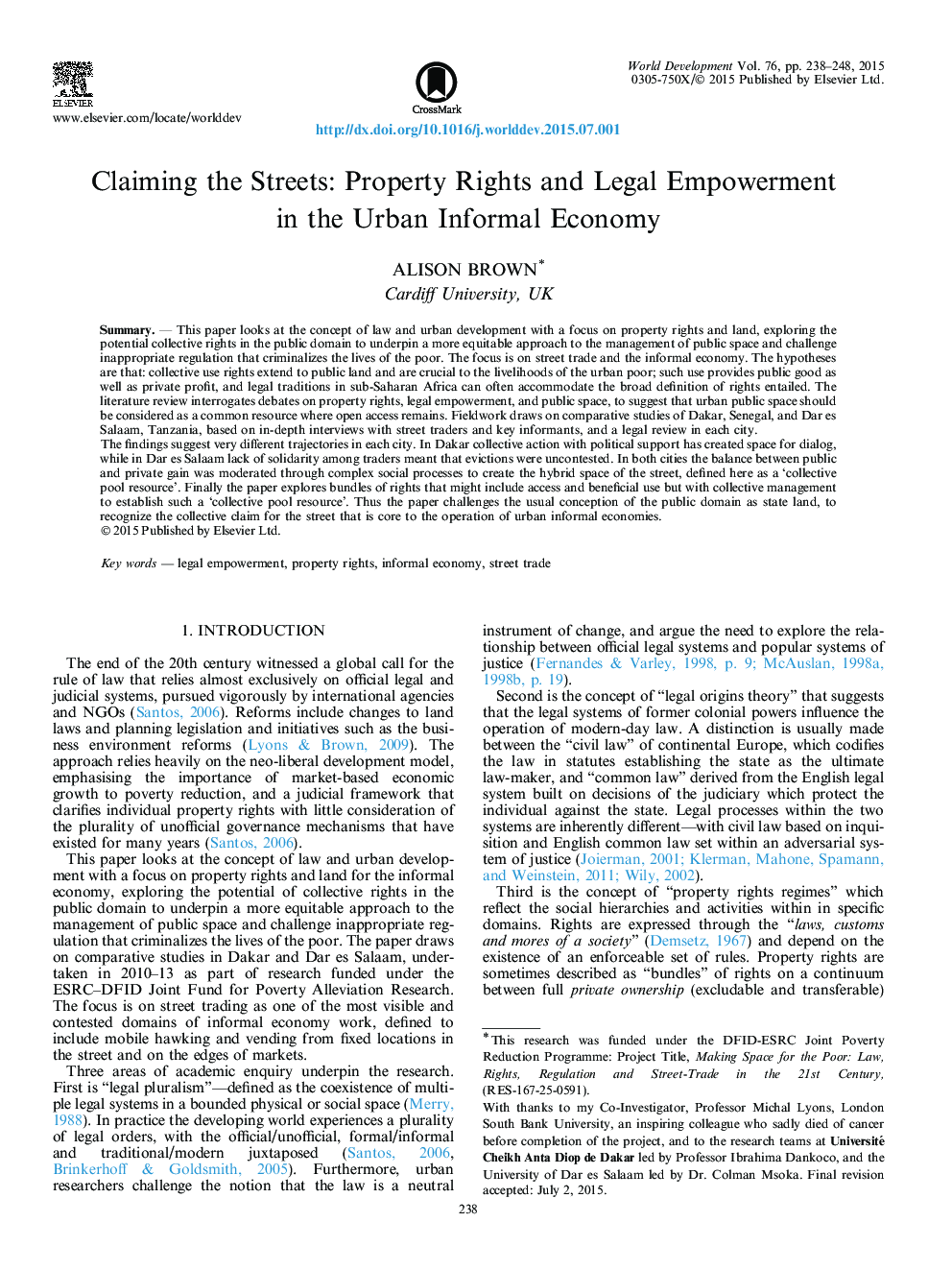| Article ID | Journal | Published Year | Pages | File Type |
|---|---|---|---|---|
| 7393473 | World Development | 2015 | 11 Pages |
Abstract
The findings suggest very different trajectories in each city. In Dakar collective action with political support has created space for dialog, while in Dar es Salaam lack of solidarity among traders meant that evictions were uncontested. In both cities the balance between public and private gain was moderated through complex social processes to create the hybrid space of the street, defined here as a 'collective pool resource'. Finally the paper explores bundles of rights that might include access and beneficial use but with collective management to establish such a 'collective pool resource'. Thus the paper challenges the usual conception of the public domain as state land, to recognize the collective claim for the street that is core to the operation of urban informal economies.
Keywords
Related Topics
Social Sciences and Humanities
Economics, Econometrics and Finance
Economics and Econometrics
Authors
Alison Brown,
